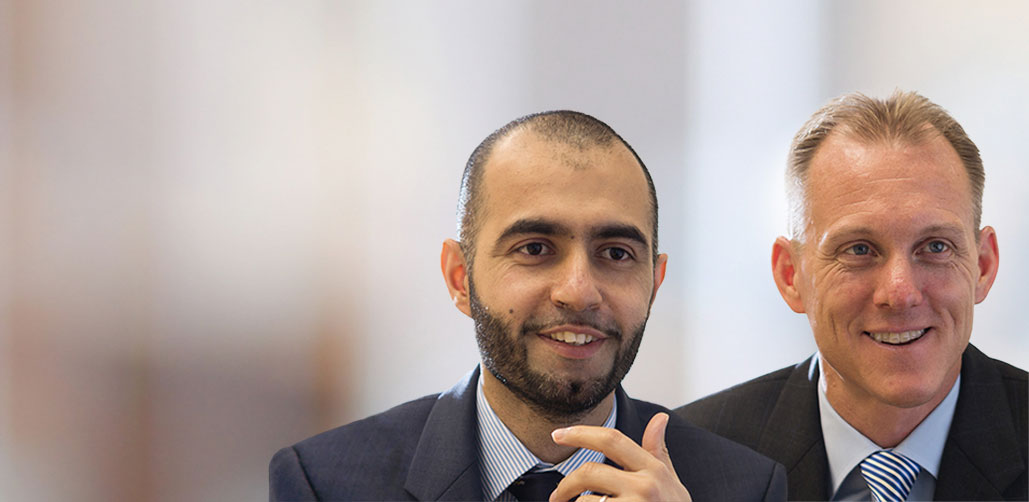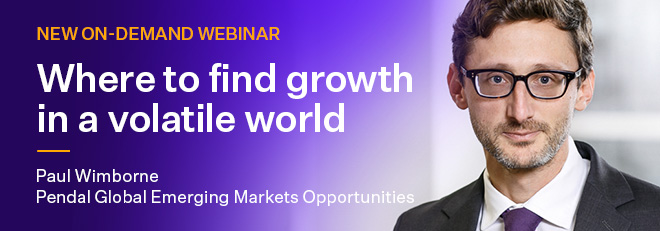
Mainstream Online Web Portal
LoginInvestors can view their accounts online via a secure web portal. After registering, you can access your account balances, periodical statements, tax statements, transaction histories and distribution statements / details.
Advisers will also have access to view their clients’ accounts online via the secure web portal.
Global equities: Is Euro pessimism overdone?
Investor pessimism about a Continental recession seems overdone and European shares are starting to look good value, argues Pendal’s Paul Wild
- EU shares hit by war and energy crisis
- Value emerging
- Banks to benefit from rising rates
EUROPEAN shares are starting to look good value for investors willing to look through the Ukraine war and winter’s likely energy crisis, argues Pendal Group’s Paul Wild.
Companies in Europe are trading at an average of about 11 times next year’s earnings, which is around 20 per cent lower than the average price earnings ratio of the last few decades.
There is reason for the pessimism. The drawn-out Russia and Ukraine war shows no sign of resolution, and a looming energy crisis and potential power rationing is raising the risk of recession.
“The starting point is that investors are basically at maximum underweight for European equities,” says Wild, who manages a European equities fund at Pendal’s UK-based subsidiary J O Hambro.
“We’ve had about 30-plus weeks of outflows this year. Since 2016, investors have redeemed about 30 per cent of their holdings in European shares.”
For most investors, reducing euro holdings has been the right move.
European shares have underperformed US shares over the last 10 years, largely because the US economy has been growing faster and US market features more technology and other high-growth companies.
“But if you look at the decade before that, in local currency terms Europe and US performance was pretty similar,” says Wild.

Pendal Global
Select Fund
Something very
different in
global equities
Growth stocks outperforming
“So the question is, can the growth stocks keep outperforming?”
That depend on the path of interest rates, says Wild.
“The growth boom benefited from the extrapolation of very low risk-free rates and negative real rates which had a massive effect on valuations.
“Coming into the Covid period, it almost felt as if valuation didn’t matter anymore.
“Now with interest rates going back up, valuation has become a hot topic again.
“That’s quite exciting and puts Europe in a good place. Why? Because on a global basis, Europe shares are slightly underweight growth and overweight value.”
One of the main reasons European markets overweight value is because of a heavy weighting to financials, with some of the world’s largest banks listed on the European exchanges.
“European banks have around €6 trillion of demand deposits which until recently yielded zero or lower. If the European Central Bank moves rates move north of 2 per cent, sector profitability will be transformed,” says Wild.
“The bottom line that you are starting to see already is very large earnings upgrades for European banks, simply on the back of net interest margin expansion.”
Wild says the trajectory of global interest rates favour Europe over the US, with the likely peak in cash rates in Europe likely to be nearly half the level of where the US peaks.
“Interest rates in Europe are rising but they are still going to be far lower than in other parts of the world.”
European recession fears ‘overdone’
Wild also says investor pessimism about recession is likely overdone, with the eurozone likely to skirt recession over the winter.
“Fiscal policy in Europe, particularly in Germany, is having a significant turn. Germany has come out with three aid packages since the Ukraine invasion which in total equate to about 2.7 per cent of GDP.
“Unemployment in Europe is still at all time low levels and we’re seeing reasonable consumer resilience.”
And importantly, the EU has also been aggressively building gas reserves to head off shortages over winter.
“It feels like European governments have taken away the Armageddon scenario,” says Wild.
The environment is ripe for a shift in investor approach back to GARP — buying ‘growth at a reasonable price’ — which suits Europe’s weighting towards industries like pharmaceuticals, automotive, insurance and banks.
“Who doesn’t like to buy growth? But it absolutely has to be at the right price.
“There are banks in Europe trading at five- or six-times earnings, yielding 7 or 8 per cent — with share buybacks.”

Adviser Sam is invested
in making our world
A better place.
Watch as Sam meets a
mum rebuilding her life
thanks to responsible
investing
About Paul Wild and Pendal global equities strategies
Paul Wild is senior fund manager with J O Hambro Capital Management, a London-based active investment manager which is part of Pendal Group.
Paul manages J O Hambro’s Continental European fund.
Pendal offers a range of global equities strategies to Australian investors including:
- Pendal Global Select Fund
- Pendal Concentrated Global Share Fund
- Regnan Global Equity Impact Solutions Fund
- Pendal Global Emerging Markets Opportunities Fund
Pendal is an independent, global investment management business focused on delivering superior investment returns for our clients through active management.
Contact a Pendal key account manager here
This information has been prepared by Pendal Fund Services Limited (PFSL) ABN 13 161 249 332, AFSL No 431426 and is current at October 26, 2022. PFSL is the responsible entity and issuer of units in the Pendal Concentrated Global Share Fund (ARSN: 613 608 085) and Pendal Global Select Fund (ARSN: 651 789 678). A product disclosure statement (PDS) is available for each fund and can be obtained by calling 1300 346 821 or visiting www.pendalgroup.com. The Target Market Determination (TMD) for the funds is available at www.pendalgroup.com/ddo. You should obtain and consider the PDS and the TMD before deciding whether to acquire, continue to hold or dispose of units in the Fund. An investment in the Fund or any of the funds referred to in this web page is subject to investment risk, including possible delays in repayment of withdrawal proceeds and loss of income and principal invested. This information is for general purposes only, should not be considered as a comprehensive statement on any matter and should not be relied upon as such. It has been prepared without taking into account any recipient’s personal objectives, financial situation or needs. Because of this, recipients should, before acting on this information, consider its appropriateness having regard to their individual objectives, financial situation and needs. This information is not to be regarded as a securities recommendation. The information may contain material provided by third parties, is given in good faith and has been derived from sources believed to be accurate as at its issue date. While such material is published with necessary permission, and while all reasonable care has been taken to ensure that the information is complete and correct, to the maximum extent permitted by law neither PFSL nor any company in the Pendal group accepts any responsibility or liability for the accuracy or completeness of this information. Performance figures are calculated in accordance with the Financial Services Council (FSC) standards. Performance data (post-fee) assumes reinvestment of distributions and is calculated using exit prices, net of management costs. Performance data (pre-fee) is calculated by adding back management costs to the post-fee performance. Past performance is not a reliable indicator of future performance. Any projections are predictive only and should not be relied upon when making an investment decision or recommendation. Whilst we have used every effort to ensure that the assumptions on which the projections are based are reasonable, the projections may be based on incorrect assumptions or may not take into account known or unknown risks and uncertainties. The actual results may differ materially from these projections. For more information, please call Customer Relations on 1300 346 821 from 8am to 6pm (Sydney time) or visit our website www.pendalgroup.com

